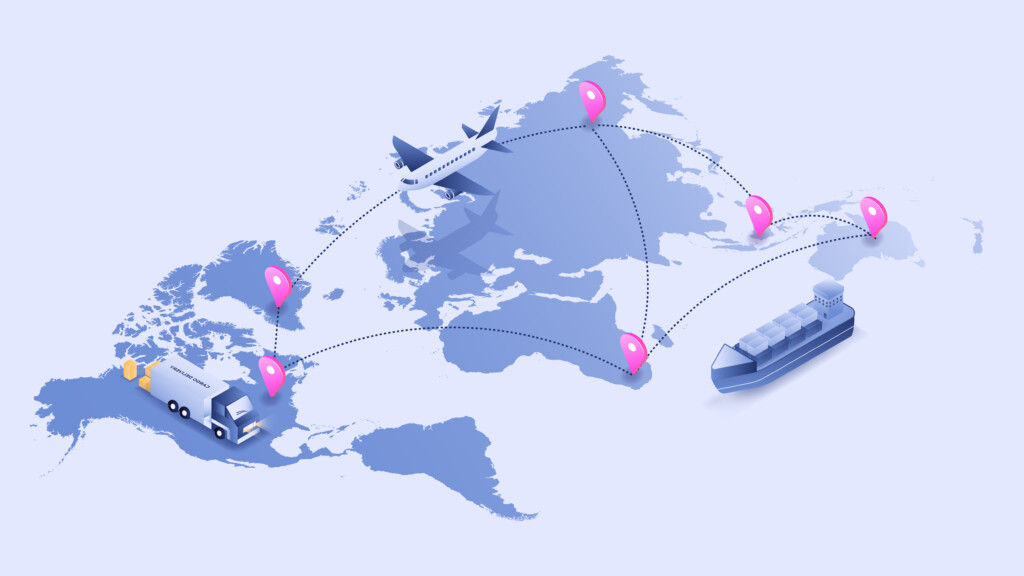How Secure, Private Asset Tracking Supports Efficient Business Operations

Asset tracking is a powerful application of the IoT. Companies that deploy IoT-based asset tracking systems are often able to reduce costs by increasing efficiency and security, and reducing maintenance costs for equipment and vehicles. Thoughtful deployments with appropriate security measures in place can result in an excellent return on investment over time.
How Asset Tracking Adds Value
Depending on the application, many companies are hoping to track assets in real-time. This could be essential when an item or a vehicle is in transit, and knowing its precise location is mission-critical. Some may be fine tracking assets at defined points. For example, a worksite might have a geofence set up around it, then give all on-site tools RFID tags that are triggered if one should leave the location.
This kind of tracking provides great value for companies that rely upon the data fed by their network of IoT devices. If customers can track a package out for delivery, for example, they will feel more secure about the progress of their order. Similarly, companies with fleets of vehicles out on the road can monitor wear and tear and establish more efficient maintenance cycles. Predictive maintenance cycles, for example, have been shown to reduce maintenance costs by 25%.

Other Ways IoT Asset Tracking Can Support Businesses
There are many ways asset tracking can support effective and efficient operations. Other potential uses include the following:
- Tracking a complete inventory or supply chain: In today’s challenging supply chain environment, knowing where everything is across multiple warehouses, worksites, or even countries is critical to making solid business decisions. IoT inventory solutions can help remove human error from condition monitoring or stock levels.
- Ensuring smooth handoffs between drivers switching or picking up vehicles: Often, companies may have more than one driver pilot a particular vehicle, or they might use multiple drivers on long-haul or arduous routes. That handoff could take place at specific locations or between shifts. But drivers need to know where to go at the start of their shift, and that’s where data provided by IoT devices comes in handy.
- Reducing theft of high-value assets: IoT data can be an efficient and cost-effective tool in the effort to secure and protect high-risk or high-value assets. For example, a hospital might deploy IoT devices to track prescription medication as it’s taken in and out of a pharmacy, or high-value healthcare equipment like ventilators or pulse oximeters.
Consider Security When Planning Deployments
For an asset tracking system to be truly effective, it must be secure end-to-end. Here are some important security considerations when implementing such a system:
- Password protection is crucial to ensuring devices are less vulnerable to hacks. Often, IoT devices arrive with factory settings in place, and those will likely include weak passwords that need to be reset.
- It’s important to train team members who will be working with the devices or the data they yield. Make sure everyone on staff knows what security risks to look out for, and how to properly protect the network and its data output.
- Implement a regular schedule for reviewing legacy systems to ensure firmware and related software are consistently updated. That will ensure any security patches are applied and networks will be less vulnerable.
- Make sure SIM cards in devices are being managed properly. Whether you’re monitoring IMEI locks or general card status, this is a critical piece of avoiding data overages.
- Use private networks to pass data back and forth from cellular IoT devices to the cloud. This protects that data from being vulnerable to access via public IP addresses, and eliminates a significant attack vector.

Good Security Practices Support Ethical IoT Deployments
Private networks for data transfer help protect against IoT device exploitation, which is something companies should take into consideration when planning deployments. Sometimes, that data might contain personal information about employees or consumers, and it is important to handle that thoughtfully and safely.
Legislation requiring the use of electronic logging devices (ELDs) to remotely monitor all truck drivers in Canada offers a good example of this. The policy change that led to the installation of these devices is intended to improve the safety of truck drivers by ensuring they aren’t working longer hours than allowed by law. The law, however, also includes thoughtful provisions around device security, helping prevent tampering with or hacking the ELDs’ data.
In places where policy protections are not as strong, however, it falls on the companies themselves to secure their deployments. It is one of the ways in which being intentional about ethical security practices can benefit companies in the long run. Ensuring secure connections at each data handoff or sustaining network devices with appropriate updates will help maintain trust by limiting the opportunity for hackers to breach deployments.
With an eye toward security and privacy protections and a thoughtful approach to deployment, asset tracking can provide big benefits to companies looking to protect their equipment all while improving working conditions and worker safety. It’s one of the ways IoT can support effective business management and operational decision-making.
………………
Got a question for Soracom? Whether you’re an existing customer, interested in learning more about our product and services, or want to learn about our Partner program – we’d love to hear from you!



